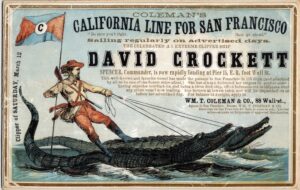 We have this week a neologism that I encounter, suddenly, almost daily. The word is one you need to know, if the enthusiasts for certain technologies are not stretching the truth. Our word proves too new even to appear in The OED.
We have this week a neologism that I encounter, suddenly, almost daily. The word is one you need to know, if the enthusiasts for certain technologies are not stretching the truth. Our word proves too new even to appear in The OED.
Soon it will. But what does it mean? In the current contexts about artificial intelligence, “agentic” means autonomous, making decisions on their own. Agentic AI does more than answer a query; it can be given parameters for complex tasks and then go about solving them in a manner it best sees fit. Human input may not be needed by such systems.
I’m thinking of travel a lot lately, and how, before I moved to Spain in 1985, I went to a travel agency with lots of general ideas. I then relied upon them to provide me with several affordable options for touring France and Spain before I arrived in Madrid, for a job interview that led to my first paying teaching gig.
Flash forward 40 years: tonight I dined at a really fine place in Richmond’s West End for sushi and sashimi. I’ve been curious about it since spotting it, so for about 20 minutes I read I used my phone to read reviews, comparing notes others left, looking at how it ranks with other similar places.
Flash forward again to the year 2030: Had I an agentic AI to help, I could have simply said “Hal, could you brief me on the strengths and shortcomings of the food at XYZ? I’m thinking of going.” No huge prompt needed. Hal would perform a number of tasks to discuss happy or unhappy reviews, prices, comparisons, even where the place sources its seafood. It could find out that Kirin Beer, my dad’s favorite, was on tap. I quaffed one in his honor today.
Agency of this sort does not, luckily, imply sentience; I’ve covered the term sentient here before. Even so, these new AI systems already have reshaped industries, if New York Times reporter Kevin Roose’s work holds true. You will need to get past the paper’s paywall to read the entire story, but Roose’s latest column focuses on the downturn in employment for recent college grads. In a podcast Roose prepared from this article, he and his cohost claim that for young college-educated workers, “if you look at the unemployment rate for college graduates right now, it is unusually high. It’s about 5.8 percent in the US. That has risen significantly, about 30 percent since 2022.”
This while overall unemployment stands at historic lows. One theory? Industries are simply automating a record number of entry-level positions. The replacement has proven acute in fields such as finance and computer science.
As agentic AI expands its scope and abilities, how many more jobs will also vanish?
These are questions we humans need to ask, we who have been agentic for longer than our primate ancestors had fire or went on two legs. We need to have a conversation, too, about how agentic we want our cybernetic companions to become. That’s not a doomsday warning, but if one loses a career and means of support, the outcome is dire.
As I tell my students, “if you want a job soon, you must add value to AI output.” Too many of them see AI as a shortcut. That’s not wise. Yet even if the students get wise about leveraging AI’s abilities, agentic AI may make statements like mine sound, and here comes a future metaphor of the month, like whistling in the dark.
AI did not write this piece, but if you or your AI have words or metaphors useful in academic writing, send them along by e-mailing me (jessid -at- richmond -dot- edu) or leaving a comment below.
See all of our Metaphors of the Month here and Words of the Week here.
Creative-Commons image from Flickr of a wonderful old-school travel agency in Glasgow, Scotland’s Great Western Road. I’ve been there, but the agency must be long gone.
 With such a tense situation in Iran currently, I decided to trot out a Cold-War term. I recall how often the USSR and US nudged each other in my childhood and teen years. Matters often seemed “on the brink” of a catastrophe. The 1961 Berlin Crisis, shown above, illustrates how close matters came at times. I was barely alive then.
With such a tense situation in Iran currently, I decided to trot out a Cold-War term. I recall how often the USSR and US nudged each other in my childhood and teen years. Matters often seemed “on the brink” of a catastrophe. The 1961 Berlin Crisis, shown above, illustrates how close matters came at times. I was barely alive then. I love this word. I love the idea that New Orleans named a newspaper after it. There’s a Mississippi town called Picayune that I should visit, and of course I love it that Mark Twain / Sam Clemens used the word and has also been skewered with it. In this recent example in The Atlantic by Graeme Wood, he describes a new biography focusing on Clemens’ difficult personal life and financial disasters thus: “His credulity led to misadventures the details of which are so picayune that Chernow’s emphasis on them can be maddening.” No detail about Clemens’ life can be maddening to me: I immediately ordered a copy of Chernow’s giant biography, Mark Twain.
I love this word. I love the idea that New Orleans named a newspaper after it. There’s a Mississippi town called Picayune that I should visit, and of course I love it that Mark Twain / Sam Clemens used the word and has also been skewered with it. In this recent example in The Atlantic by Graeme Wood, he describes a new biography focusing on Clemens’ difficult personal life and financial disasters thus: “His credulity led to misadventures the details of which are so picayune that Chernow’s emphasis on them can be maddening.” No detail about Clemens’ life can be maddening to me: I immediately ordered a copy of Chernow’s giant biography, Mark Twain.









